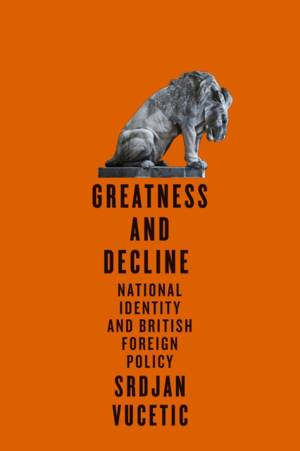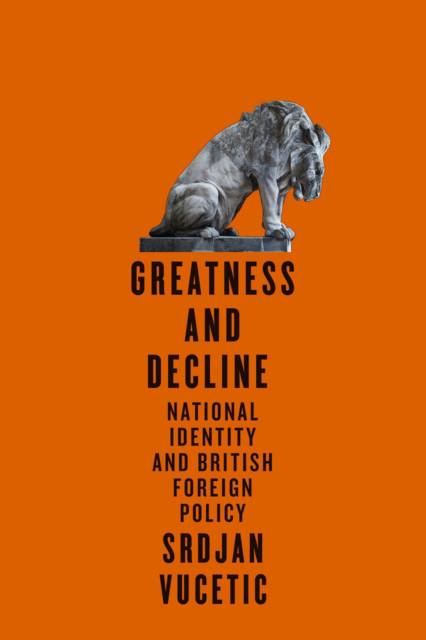
Door een staking bij bpost kan je online bestelling op dit moment iets langer onderweg zijn dan voorzien. Dringend iets nodig? Onze winkels ontvangen jou met open armen!
- Afhalen na 1 uur in een winkel met voorraad
- Gratis thuislevering in België vanaf € 30
- Ruim aanbod met 7 miljoen producten
Door een staking bij bpost kan je online bestelling op dit moment iets langer onderweg zijn dan voorzien. Dringend iets nodig? Onze winkels ontvangen jou met open armen!
- Afhalen na 1 uur in een winkel met voorraad
- Gratis thuislevering in België vanaf € 30
- Ruim aanbod met 7 miljoen producten
Zoeken
€ 43,45
+ 86 punten
Omschrijving
Exceptionalist ideas have long influenced British foreign policy. As Britain begins to confront the challenges of a post-Brexit era in an increasingly unstable world, a re-examination of the nature and causes of this exceptionalist bent is in order. Arguing that Britain's search for greatness in world affairs was, and still is, a matter of habit, Srdjan Vucetic takes a closer look at the period between Clement Attlee's ""New Jerusalem"" and Tony Blair's New Labour. Britain's tenacious pursuit of global power was never just a function of consensus among policymakers or even political elites more broadly. Rather, it developed from popular, everyday, and gradually evolving ideas about identity circulating within British - and, more specifically, English - society as a whole. To uncover these ideas, Vucetic works with a unique archive of political speeches, newspapers, history textbooks, novels, and movies across colonial, Cold War, and post-Cold War periods. Greatness and Decline sheds new light on Britain's interactions with the rest of the world while demonstrating new possibilities for constructivist foreign policy analysis.
Specificaties
Betrokkenen
- Auteur(s):
- Uitgeverij:
Inhoud
- Aantal bladzijden:
- 312
- Taal:
- Engels
- Reeks:
Eigenschappen
- Productcode (EAN):
- 9780228005872
- Verschijningsdatum:
- 18/02/2021
- Uitvoering:
- Paperback
- Formaat:
- Trade paperback (VS)
- Afmetingen:
- 150 mm x 226 mm
- Gewicht:
- 453 g

Alleen bij Standaard Boekhandel
+ 86 punten op je klantenkaart van Standaard Boekhandel
Beoordelingen
We publiceren alleen reviews die voldoen aan de voorwaarden voor reviews. Bekijk onze voorwaarden voor reviews.











